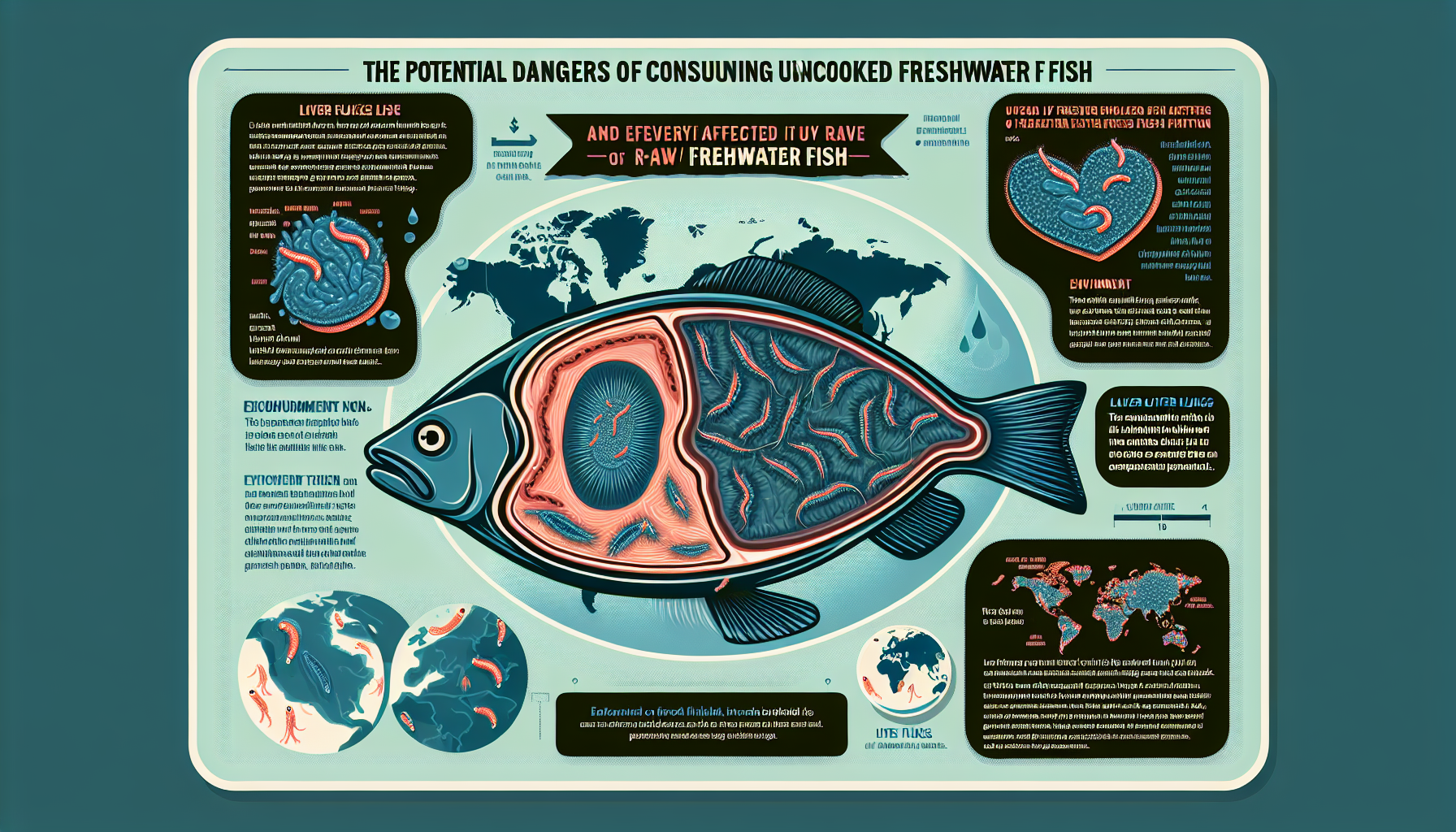Why You Shouldn’t Eat Raw Freshwater Fish: Understanding Liver Flukes and Their Threat
Did you know that eating raw freshwater fish can expose you to deadly parasites that cause liver cancer? Startling, isn't it? Today’s post aims to shed light on this unsettling fact and the ongoing efforts to combat the transmission of liver fluke infections around the world. Grab your cup of coffee as we dive into the details!
Understanding Liver Flukes: The Culprits Behind the Infection
Liver flukes are parasitic flatworms that can live in the liver of humans and various animals, causing severe health issues. Often transmitted through the consumption of raw or undercooked freshwater fish, these parasites are most prevalent in regions where such dietary practices are common.
The most notorious species, Opisthorchis viverrini and Clonorchis sinensis, are known to cause chronic liver and bile duct diseases. They can persist in the human host for decades. Alarmingly, these infections may eventually lead to cholangiocarcinoma— a rare but aggressive form of liver cancer.
How Liver Flukes Infect Humans
The life cycle of liver flukes is both fascinating and alarming. It begins in freshwater snails, which act as the first host. Larvae released from snails infect fish, burrowing into their flesh where they wait until the fish is consumed by a suitable mammalian host, including humans.
Upon ingesting raw or undercooked infected fish, the larvae mature into adult flukes within the host's bile ducts. Here, they cause inflammation, which over time can progress into more severe diseases. The best way to avoid such infections is through the proper cooking of freshwater fish, which effectively kills the parasites.
The Impact of Liver Fluke Infections Globally
Liver fluke infections are not just a regional problem but a global health concern. According to health authorities, millions are affected worldwide, with Southeast Asia being especially vulnerable due to traditional fish-eating practices.
Countries like Thailand, Vietnam, and Laos report high infection rates. In these regions, liver fluke infections are sometimes considered a public health crisis due to their burden on healthcare systems and the severe complications associated with the chronic phase of the disease.
Ongoing Efforts to Combat Liver Fluke Infections
Efforts to combat liver fluke infections are gaining momentum globally, with health organizations working tirelessly to raise awareness and initiate control measures. Key strategies include:
- Public Education: Campaigns are conducted to inform communities about the dangers of eating raw fish and to promote better food hygiene practices.
- Medical Interventions: Regular screening and treatment programs are set up in endemic areas to treat infected individuals and reduce disease prevalence.
- Research and Partnerships: Collaborations between local governments and international health organizations help develop more effective strategies to control and eventually eliminate liver fluke infections.
The Role of Government and Health Authorities
Government and health authorities play a critical role in combating the spread of liver flukes. For instance, in South Korea, public health campaigns and regular screenings have significantly reduced infection rates since their efforts began in 2005.
Authorities focus not only on treatment but also on prevention through comprehensive community education. By understanding the cultural significance of raw fish consumption, they tailor their interventions to be both culturally sensitive and effective.
Conclusion: Stay Safe and Enjoy Fish Responsibly
In conclusion, while freshwater fish can be a delicacy, the risks associated with consuming them raw are undeniable. So, what can you do to protect yourself and your family? Always ensure fish is thoroughly cooked, and if you're dining out, opt for reputable establishments that prioritize food safety.
The fight against liver flukes is ongoing, but with continued education and awareness, we can minimize the risks and enjoy our meals safely. What are your thoughts on this hidden health hazard? Would you consider changing your dietary habits? Share your thoughts in the comments below, and remember to spread the word about this important health topic!

